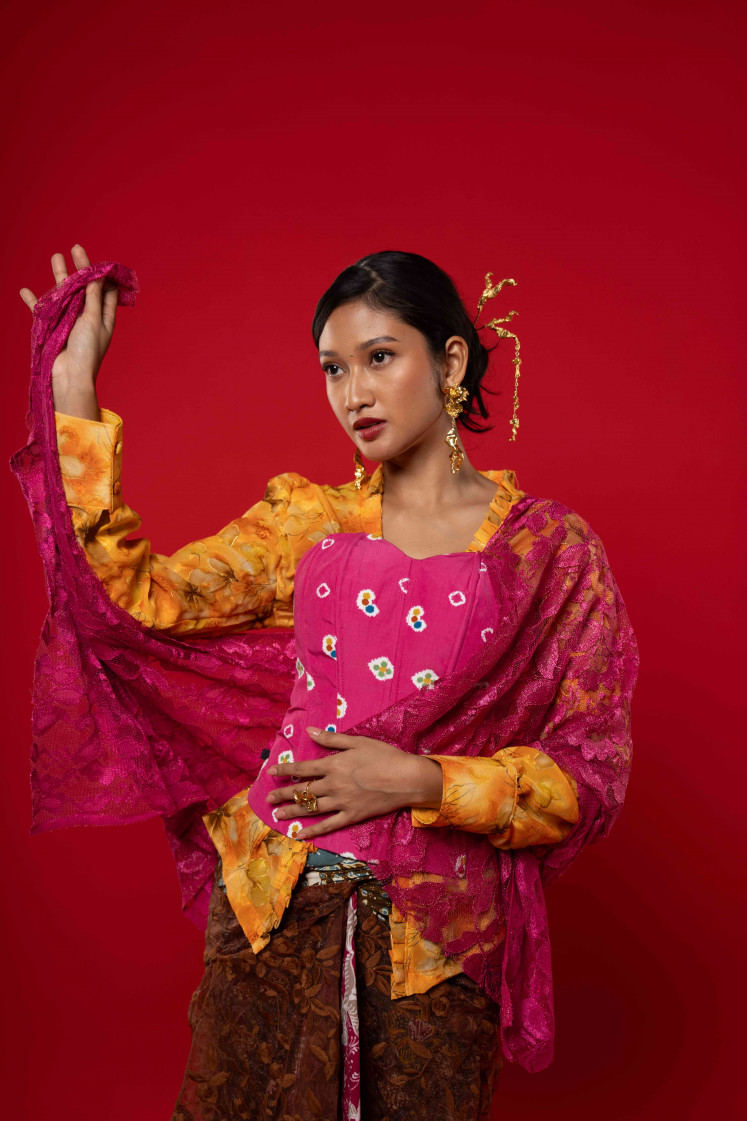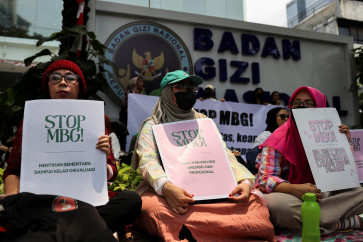Popular Reads
Top Results
Can't find what you're looking for?
View all search resultsPopular Reads
Top Results
Can't find what you're looking for?
View all search resultsMango Meter offers feminist perspective in film ratings
Change text size
Gift Premium Articles
to Anyone
A
re you tired of watching romantic flicks featuring damsels in distress? Or blockbusters where the female characters only speak a few, petty lines? Mango Meter, dubbed the world’s first ever feminist film review application, will give you the power to criticize such films right on your mobile phone.
Inspired by the movie rating site Rotten Tomatoes, a group of feminist journalist, activists and academics from six Asian countries created Mango Meter. One of the initiators, Mumbai-based gender and human rights activist Sharmee Namjoshi, said the app came about as a result of their concerns about the poor portrayal of women in movies.
“The idea came from the fact that all of us have at one time or another seen movies that depict women poorly in their narrative, while not having an Asian-driven platform to let the film industry know that they can do better,” she said in a press release.
The initiative was facilitated by German political foundation Friedrich-Ebert-Stiftung (FES) Office for Regional Cooperation in Asia as part of the Asian Political Feminism Program. The app, launched on Saturday, is available on Apple’s App Store and Google Play Store.
Following the function of the feminist Bechdel Test, films run through the Mango Meter app are judged mainly by five basic parameters: representation, agency, interaction, sexuality/relationships and intersectionality.
A rating of one mango means a movie is very sexist, while five mangoes attest to it being fully feminist.
One of Mango Meter initiators, Devi Asmarani of feminist publication Magdalene.co, suggested that most films typically still portray women in a simplified light, whether it be in terms of sexualization, objectification or being subjects of violence.
“We take all of these for granted because we dismiss them as entertainment,” she told The Jakarta Post. “Therefore, these factors tend to become internalized by our subconscious into thinking that this is normal.”
While there are numerous box office movies that have women in central roles, it doesn’t necessarily guarantee that they will get a five-mango rating. It all comes down to how the movies portray the female lead characters.
“Classic Hollywood movies like Pretty Woman, Notting Hill, and (500) Days of Summer would rate low on the scale, despite these films having women at the center of their plots,” Devi explained.
“While those that rank very highly include films such as Erin Brockovich, The Color Purple and Thelma and Louise. All of them are considered classic feminist films.”
Speaking of Indonesian films, Devi admitted that many films still depict Indonesian women in a typical misogynistic, conflict-seeking and unskilled way. However, there have been some efforts by recent films – such as Marlina the Murder in Four Acts and Aruna & Lidahnya (Aruna & Her Palate) – to shift the tone of this female perception.
“We don’t expect major changes [in Indonesian films] like this to happen overnight. It’s an ongoing process and there is proof that it can shift to a more supportive female tone. We hope that the Mango Meter can become a conversation piece toward that kind of shift,” she said.
Bahasinema film critic, Permata Adinda, applauded the app as a step forward in the effort to destabilize the norm of toxic masculinity within filmmaking and in films themselves.
“You have several tropes that are still attached to women in films that are considered degrading and an oversimplification of a woman’s being, such as the damsel in distress, the manic pixie dream girl, the domesticated, subservient wife, etc.” she said.
“Although many Indonesian films are getting better with narration and cinematography, many of them are still not free from these characterizations,” she said.











